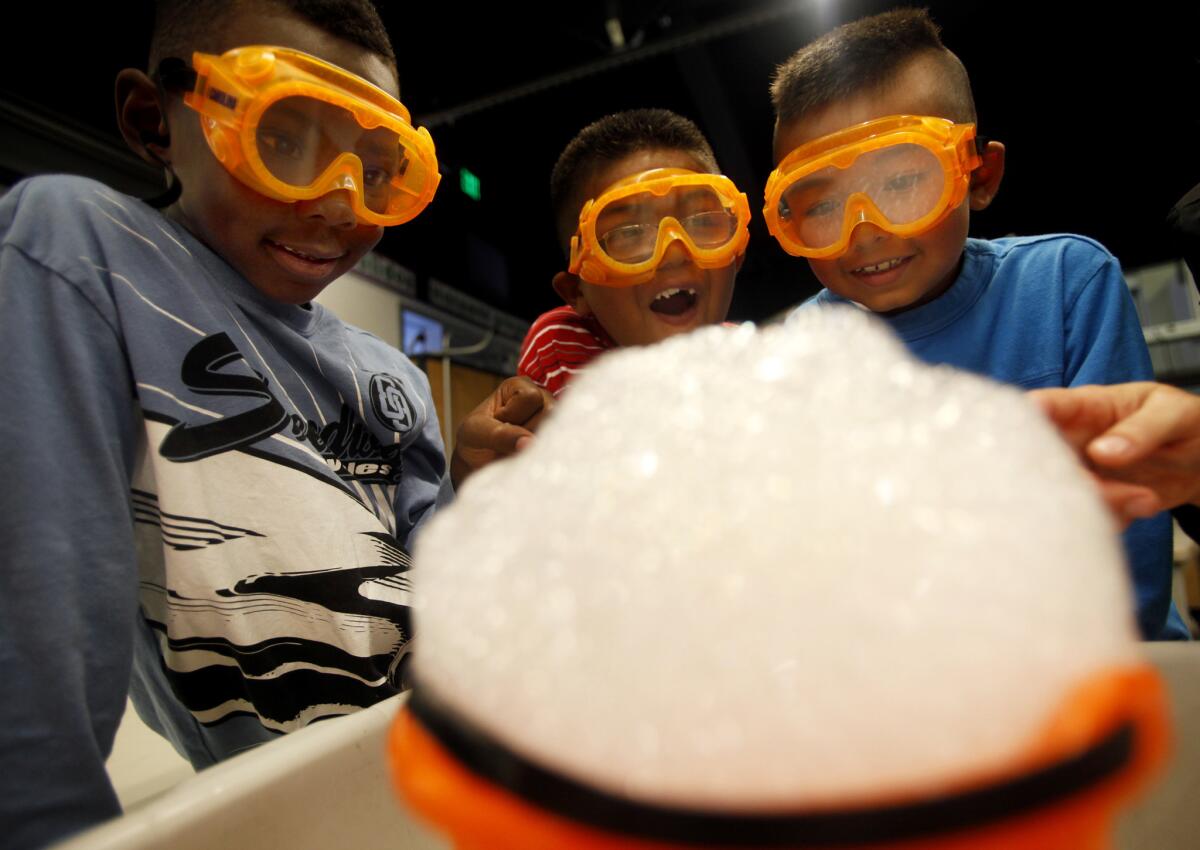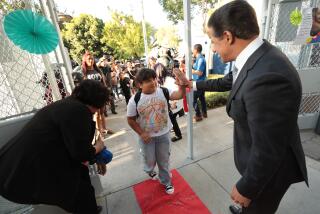State education panel delays vote on new science standards

- Share via
State Board of Education officials delayed a decision Wednesday on adopting new science standards that would tackle fewer subjects more deeply and favor hands-on experiments over rote memorization of facts.
The board decided to take up the issue again in the fall, after educators return from summer break and can weigh in on the proposed standards.
But board members -- along with 21 speakers from academia, business and community advocacy groups who attended the meeting -- expressed support for the proposed benchmarks, saying they would make science more exciting for students. They also would better prepare them for huge labor market demands for math and science skills, several speakers said.
“We will get these standards through,” board member Bruce Holaday said. “They are terribly important.”
The proposed benchmarks are based on the Next Generation Science Standards, which were unveiled in April by California and 25 others states in the first national effort since 1996 to transform the way science is taught. The standards emphasize understanding of concepts and hands-on practices such as defining problems, asking questions, designing investigations, analyzing data and using evidence to draw conclusions.
The standards also delve more thoroughly into such often-controversial topics as climate change and the impact of genetic engineering on food and medicine.
The shift to a more practical application of science and engineering concepts comes amid widespread concerns over the low achievement of U.S. students in science and math. Only 21% of California public school eighth-graders scored as proficient in science, according to the 2011 National Assessment of Educational Progress, a federal government project that monitors academic achievement.
Yet jobs related to science, technology, engineering and math are growing three times faster than others.
Chris Roe of the California STEM Learning Network told board members that at least 30 business organizations back the standards; representatives from Chevron, Boeing and other corporations also expressed support at the Sacramento meeting.
“We owe it to our children and their future” to improve science education, said Phil Lafontaine, a California Department of Education official who helped create the proposed standards.
A representative from the California Teachers Assn. told the board that training on how to teach the new standards was urgently needed. One study has found that only one-third of elementary teachers felt prepared to teach science, according to Arun Ramanathan of Education Trust-West, an Oakland-based policy group.
“We know the standards themselves are not going to fix that, but they provide a starting point for that change,” Ramanathan said.
One critic has been the Thomas B. Fordham Institute, a Washington, D.C.-based educational policy organization. President Chester E. Finn said the national benchmarks excessively focus on practice over scientific knowledge and that California’s current standards are superior.
An 80-member team of California educators, scientists and business and industry leaders helped develop the national standards, which were based on a 2011 framework by the National Research Council. A smaller group worked on the proposed state benchmarks after three regional public meetings this spring.
If the standards are passed by the state board, another expert group will develop a plan to put them in place for the 2014-15 school year.
ALSO:
Man plows car through gate at Bob Hope Airport
Man guilty of posing as officer, seeking sex with victim’s wife
Redlands teacher who bore child pleads not guilty to abusing 3 boys
Twitter: @TeresaWatanabe | Facebook
More to Read
Sign up for Essential California
The most important California stories and recommendations in your inbox every morning.
You may occasionally receive promotional content from the Los Angeles Times.










